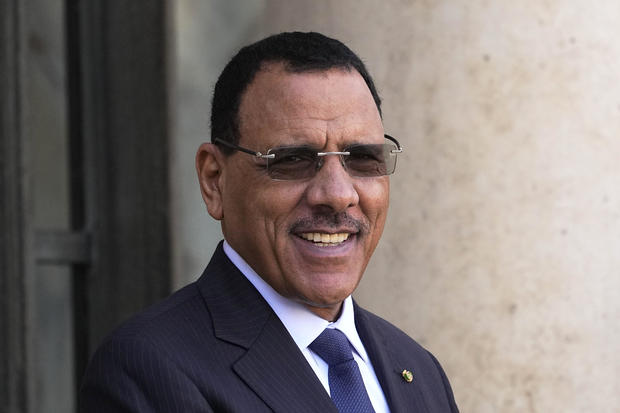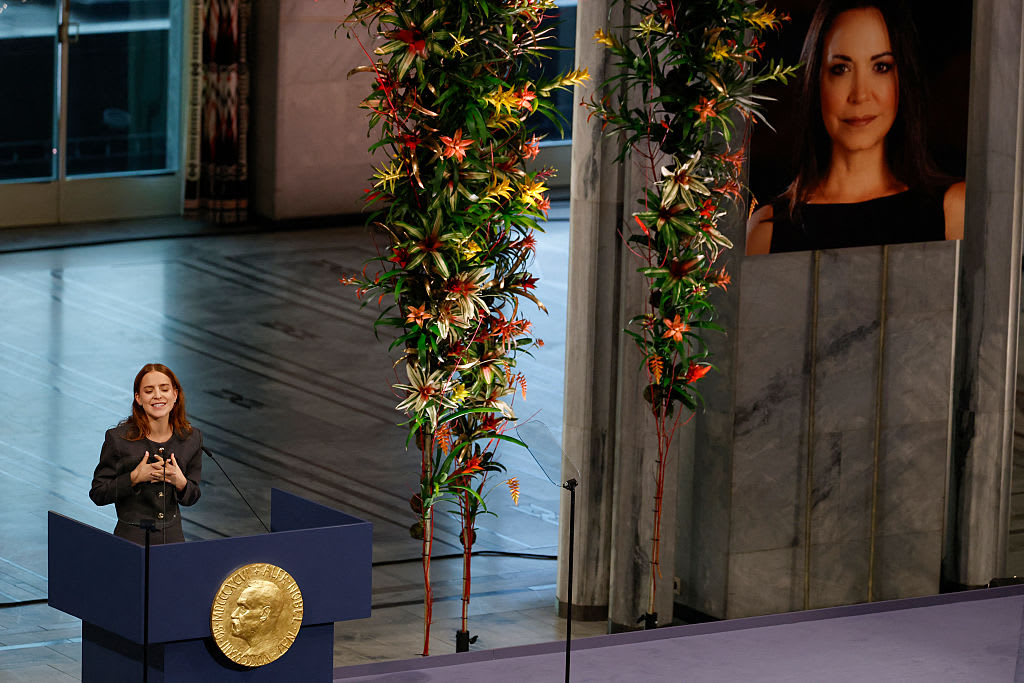Niger coup leaders say they'll prosecute President Bazoum for "high treason"
Niger's coup leaders said Monday they will prosecute deposed President Mohamed Bazoum for "high treason" and undermining state security.
The announcement was made on state television by Colonel-Major Amadou Abdramane just hours after the military junta that ousted the president said they were open to resolving the mounting regional crisis diplomatically.
Abdramane said the military regime had "gathered the necessary evidence to prosecute before competent national and international authorities the ousted president and his local and foreign accomplices for high treason and for undermining the internal and external security of Niger."
If found guilty, Bazoum could face the death penalty, according to Niger's penal code.
Niger's democratically elected president was ousted by members of his presidential guard on July 26 and has since been under house arrest with his wife and son. People close to the president as well as those in his ruling party say the family's electricity and water have been cut off and they're running out of food.
A member of his entourage said he saw his doctor on Saturday.
"After this visit, the doctor raised no problems regarding the state of health of the deposed president and members of his family," the military said.
International pressure is mounting on the military junta to reinstate Bazoum. The West African regional bloc ECOWAS has imposed sanctions on Niger and threatened military intervention if civilian rule is not restored.
But new Prime Minister Ali Mahaman Lamine Zeine said in an interview released Monday that Niger will be able to thwart the sanctions, according to Agence France-Presse.
On July 30, it issued a seven-day ultimatum to restore Bazoum or face the potential use of force, but the deadline expired without the new rulers backing down.
In the weeks since the coup, the junta has entrenched itself in power, appointing a new government and leveraging anti-French sentiment against its former colonial ruler to shore up support among the population.
The African Union Peace and Security Council was meeting Monday to discuss Niger's crisis and could overrule the decision if it felt wider peace and security on the continent was threatened by an intervention.




